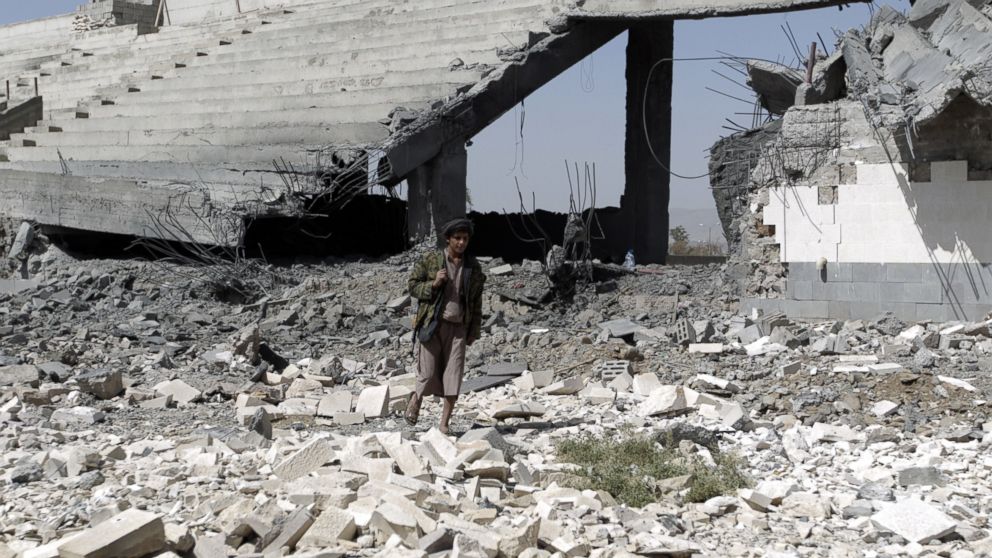Yemen Crisis a 'Humanitarian Catastrophe,' Experts Say
The Yemen crisis has developed into a "humanitarian catastrophe," experts say.

— -- It’s been just more than two months since a Saudi Arabia-led coalition began its airstrike campaign against Houthi rebels in Yemen, and the country has since become a “humanitarian catastrophe,” experts said Thursday.
“I am shocked about what I have seen,” said Medecins Sans Frontieres’ Middle East Operations Manager Pablo Marco, who spent 50 days inside the country recently. “The biggest problem is the fact both parties in the conflict are not respecting the civilians and, specifically, they are not respecting medical facilities and medical staff.”
Marco was one in a panel of three experts in Washington who took a hard line against attacks by the Houthis as well as the 10-country coalition engaged in a bombing campaign against them for the past 10 weeks. The U.S. provides intelligence and material support to that Arab-led coalition.
The World Health Organization said on Wednesday that more than 2,000 people have been killed and more than 8,000 injured in the conflict since airstrikes began, and that 8.6 million people are in urgent need of medical help.
In the past, Saudi Arabia has pushed back against reports of civilians being targeted by its airstrikes and said the coalition has "exercised restraint."
Last week, U.S. State Department press director Jeff Rathke said the only solution to Yemen's crisis is "to get back to the political dialogue process," adding, "the Houthis have to cease unilateral aggressive actions inside Yemen in order for that to have a chance.”
Rathke added that the U.S. has urged "Saudi and other authorities to continue to allow commercial shipments of fuel and food to avert a humanitarian crisis for the 16 million Yemenis in need of assistance. And we also understand that humanitarian aid organizations and the United Nations will continue to try to deliver aid as conditions permit.”
However, the panel said dozens of hospitals have had to shut down inside the country, and nearly all that are still operating are powered by generators.
“We are witnessing how the whole health system in the country is literally coming to a halt,” Marco said. “In a matter of 15 days or two weeks there will be hundreds of people who will be dying from this.”
Philippe Bolopion, a crisis advocacy director for Human Rights Watch (HRW), said his teams have documented cases where coalition airstrikes have caused “disproportionate damage” to the civilian population.
He said HRW has called on the U.S. to exercise pressure on the coalition.
“They have made the case that they are supportive to the coalition but are not a party to the conflict,” Bolopion said. “We are trying to challenge that a little bit, because according to publicly available information the U.S. has been refueling war planes in the air, providing intelligence possibly on some targets, helping with coordination. And if they are in some cases they are a party to the conflict, they could be found to be complicit to some of the violations that have occurred.”
The panel said the Houthis share some of the blame for lack of access to those in need of medical assistance, citing sniper attacks and bombings around hospitals.
“One of the more shocking things is that they reacted to the start of the military operation by recruiting even more children in their ranks,” Bolopion said.
The panel said that the coalition could provide some relief to the health crisis by easing the tight control of Yemen’s border and ports. Bolopion called it “a blockade,” and said it hindered efforts to provide aid to the population during the five-day humanitarian ceasefire earlier this month.
Bolopion said Yemen receives almost 80 percent of its food supply from international shipments.
“It’s hugely dependent on the outside, and the same thing for fuel,” Bolopion said.



